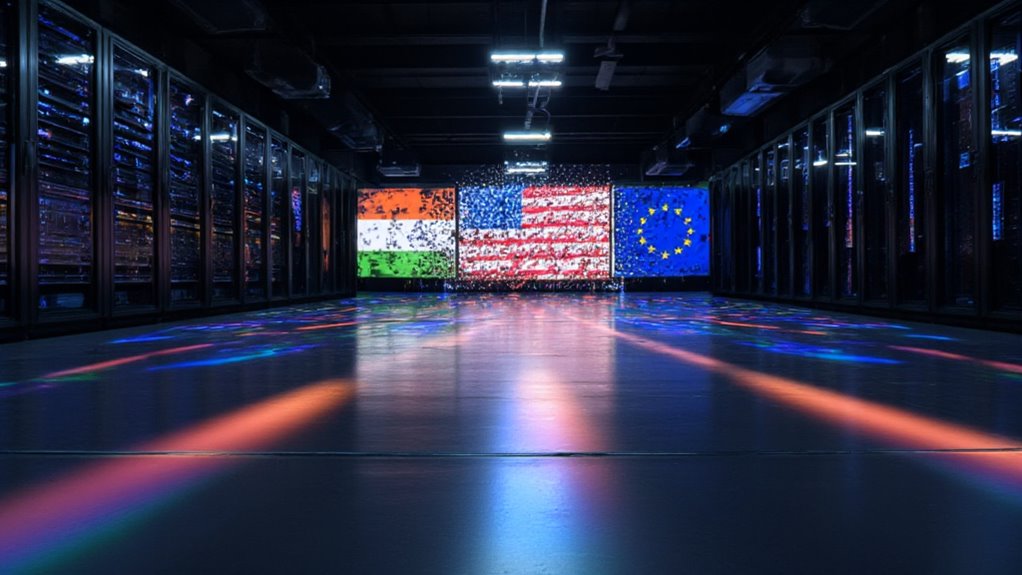While the United States has long dominated the global AI landscape, its grip on the industry is starting to slip. Nations worldwide are ditching their dependence on U.S. AI models faster than teenagers abandoning last year’s social media platforms. And who can blame them? With nearly $200 billion in global AI investment expected next year, countries aren’t exactly enthusiastic about playing second fiddle to American tech giants.
The U.S. hasn’t exactly helped its case. Its new AI Diffusion Framework, which creates a three-tiered system for AI access, has left even close allies feeling like they’re sitting at the kids’ table. NATO members and India find themselves in Tier 2, facing restrictions on advanced AI technologies. Surprise, surprise – they’re not happy about it. Major tech companies like Oracle have declared this framework “the most destructive” rule ever to impact the U.S. technology industry.
America’s AI gatekeeping has backfired spectacularly, pushing allies away as they bristle under second-class treatment in the new digital hierarchy.
This diplomatic fumble has created a perfect storm. Countries are now scrambling to develop their own AI capabilities, treating it like a national priority. Even Poland and the Baltic states, traditionally staunch U.S. allies, are exploring alternatives. Countries are increasingly focused on securing national interests through AI development. Modern AI systems offer continuous learning capabilities that make them increasingly valuable for national security. It’s like watching a tech version of musical chairs, with nations rushing to secure their spots before the music stops.
China, meanwhile, is watching this unfold with barely concealed glee. As countries seek alternatives to U.S. technology, Chinese firms are positioning themselves as willing partners. The irony? U.S. restrictions might actually boost foreign competitors by creating a vacuum they’re keen to fill.
The global AI landscape is shifting dramatically. Countries are investing heavily in domestic AI innovation, passing new laws, and forming unexpected alliances. It’s a high-stakes game of technological chess, and the U.S. might have just made a questionable move.
The competition for resources, talent, and intellectual property is fierce – think Black Friday shopping, but with supercomputers and algorithms instead of discounted TVs.
The message is clear: nations aren’t waiting around for U.S. permission to advance their AI capabilities. They’re taking matters into their own hands, and the global AI market will never be the same. Welcome to the new era of AI nationalism, where everyone wants a piece of the digital pie.





